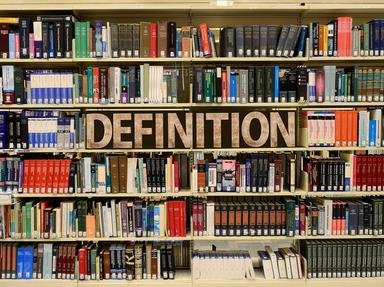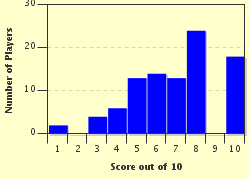Quiz Answer Key and Fun Facts
1. Denoting quality or state
2. Denoting marriage or union
3. Denoting nourishment, growth or development
4. Denoting a state or process
5. Denoting a diseased condition
6. Denoting breathing or respiration
7. Denoting a place containing or associated with
8. Specifies direction
9. Indicating place of origin, language, or style
10. Examination
Source: Author
kino76
This quiz was reviewed by FunTrivia editor
looney_tunes before going online.
Any errors found in FunTrivia content are routinely corrected through our feedback system.

